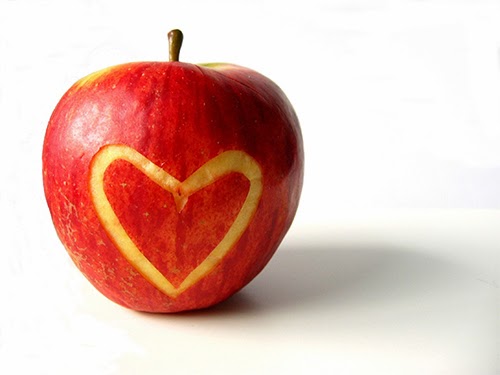It’s the number one cause of death for women--but heart disease is also 80 percent preventable, according to the Mayo Clinic. How do you stop this sometimes-silent killer? Taking one heart-healthy step a day, even if it’s a small step, can greatly reduce the risk of your entire family developing heart disease.
- Go nuts. Reign in cholesterol by sprinkling unsalted nuts on a salad or your oatmeal. “Nuts are rich in plant sterols, natural substances that block absorption of cholesterol from the digestive tract,” says Stephen Devries, M.D., a preventive cardiologist at Northwestern Memorial Hospital. Two handfuls a day (about 2 ounces) have been shown to reduce “bad” LDL cholesterol by 10 points. Four handfuls of nuts have been shown to cut the risk of heart disease by more than 1/3. “All nuts appear to be beneficial, but almonds and walnuts have the most benefit,” Devries says.
- Start everyone’s day the heart-healthy way. Keep your family’s hearts beating strong with a heart-healthy breakfast of two slices of whole grain toast, an 8-ounce glass of orange juice, and ½ cup of low-fat yogurt. “You can reduce your cholesterol by as much as 15 to 20 percent with a healthy diet of fruits, vegetables, whole grains, and lean proteins,” says Suzanne Steinbaum, M.D., cardiologist and director of Women and Heart Disease at the Heart and Vascular Institute of Lenox Hill Hospital.
- Stop and smell the roses. Allot 10 minutes of “me time” every day, no matter how busy you are. “Enjoying life and doing something indulgent for yourself leads to a positive attitude and the likelihood you’ll make heart-smart choices like exercising and eating healthy,” says Martha Grogan, M.D., a cardiologist at the Mayo Clinic.
- Soak, don’t shower. Send stress packing with a soothing soak in the tub tonight instead of a rushed shower. “Your blood pressure and heart rate both jump up when you’re stressed or angry. And people who experience a lot of anger and stress get more heart disease,” says A. Marc Gillinov, M.D., cardiologist and surgical director of the Center for Atrial Fibrillation at The Cleveland Clinic.
- Fill up your cup. No need to shy away from coffee this morning or any time of the day. A new Harvard study says there is no risk of heart disease associated with coffee, even as much as six cups a day. And as long as it’s brewed using a paper filter, boiled, or prepared in a French press, 8 ounces of coffee can help shave off a few points of cholesterol. If coffee isn’t your thing, fill your mug with hot cocoa. The natural plant compounds in cocoa help your blood vessels function better to reduce your risk of cardiovascular disease.
- Make someone else feel good. Go out of your way to compliment someone or ask another person about her day. “If you make someone happy, you’ll make yourself happy,” says Grogan. Happiness reduces stress hormones in your body and helps your heart recover faster after vigorous exercise or exertion, according to a study from the University of Illinois.
- Get in touch with nature. Instead of walking on a treadmill or at the mall, switch things up and walk in a park, woods, or other green space. Japanese researchers found walking in woodsy places lowers the stress hormone cortisol by almost 16 percent and blood pressure by almost 4 percent. Indoor walking yielded about one-third less benefits.
- Grab an apple. Florida State University researchers found an apple a day just might keep the doctor away by lowering LDL cholesterol by 23 percent and raising “good” HDL cholesterol by about 4 percent, according to their study.
- Take a stand. Grogan suggests standing up to perform tasks such as folding laundry, balancing the checkbook, or paying bills online. “Studies have shown that prolonged sitting or sitting for the majority of the day is equivalent to smoking as far as the risk for cardiovascular disease,” she says. On the flip side, standing helps improve circulation and the health of your arteries.
- Stop snoring. Sixty-four percent of people with high blood pressure have sleep apnea. If your hubby’s snoring kept you up last night, insist he have his blood pressure checked ASAP. Snoring is a sign of sleep apnea.



No comments:
Post a Comment
You've decided to leave a comment – that's great! Please keep in mind that comments are moderated. So, please do not use a spammy keyword or domain in your comment, or it will be deleted. Let's have a meaningful conversation instead. Thanks for stopping by!